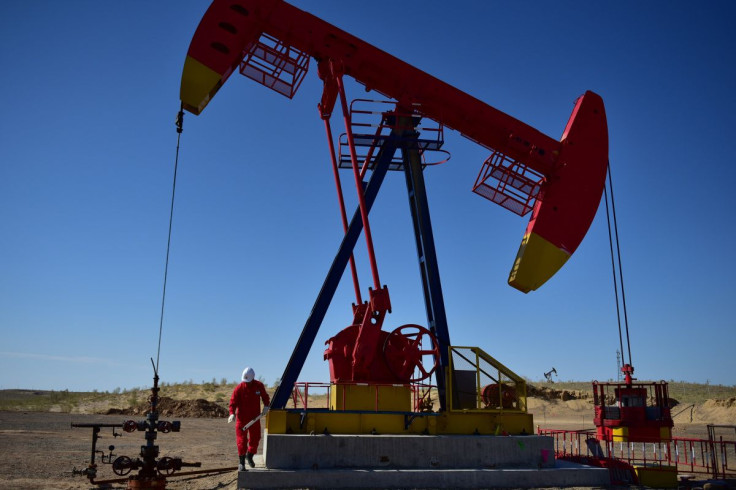Brent Crude Hits Pre-Ukraine Invasion Lows On Recession Fears

Oil prices fell on Thursday, with Brent touching $93.50 a barrel - the lowest since Feb. 21 before Russia's invasion of Ukraine sent prices soaring - as fears mounted of an economic recession which could sap fuel demand.
Brent crude futures were down $2.88, or 3%, at $93.90 a barrel by 1543 GMT, while West Texas Intermediate (WTI) crude futures fell $2.37, a 2.6% decline, to $88.29.
Brent hit a low of $93.50, the lowest since Feb. 21 while U.S. crude touched its lowest since Feb. 3 at $87.97.
The selling followed an unexpected surge in U.S. crude inventories last week. Gasoline stocks, the proxy for demand, also showed a surprise build as demand slowed, the Energy Information Administration said.
The demand outlook remained clouded by increasing worries about an economic slump in the United States and Europe, debt distress in emerging market economies, and a strict zero COVID-19 policy in China, the world's largest oil importer.
"A break below $90 is now a very real possibility which is quite remarkable given how tight the market remains and how little scope there is to relieve that," said Craig Erlam, senior market analyst at Oanda in London.
"But recession talk is getting louder and should it become reality, it will likely address some of the imbalance."
Further pressure followed fears that rising interest rates could slow economic activity and limit demand for fuel. The Bank of England (BoE) raised rates on Thursday and warned about recession risks.
An OPEC+ agreement on Wednesday to raise its output target by just 100,000 barrels per day (bpd) in September, equivalent to 0.1% of global demand, was viewed by some analysts as bearish for the market.
OPEC heavyweights Saudi Arabia and the UAE are ready to deliver a "significant increase" in oil output should the world face a severe supply crisis this winter, sources familiar with the thinking of the top Gulf exporters said.
© Copyright Thomson Reuters {{Year}}. All rights reserved.





















